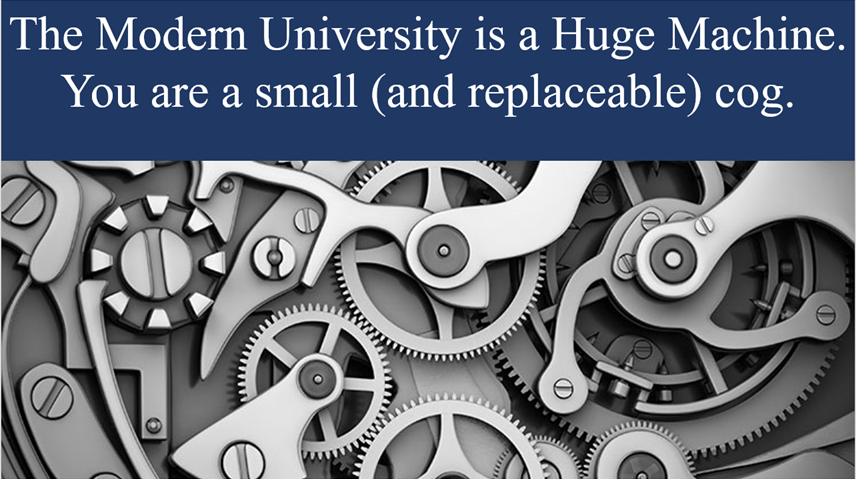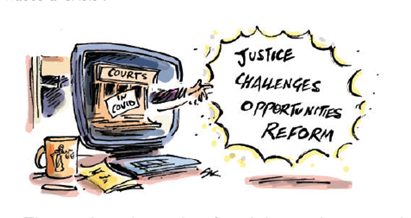
A 🧵 on managing expectations in #academia #highereducation (from my own painfully learnt experiences)
#AcademicTwitter, I accidently deleted my earlier popular pinned thread. I thought it was a good excuse to repost, but with some further reflections (older/wiser?)
#AcademicTwitter, I accidently deleted my earlier popular pinned thread. I thought it was a good excuse to repost, but with some further reflections (older/wiser?)
So here is the original thread:
threadreaderapp.com/thread/1309366…
threadreaderapp.com/thread/1309366…
These are tips that I wish I had learnt earlier - I hope they help a few of you struggling with the many demands of academic life in long, dragging #pandemic where academic life is increasingly under acute pressure and everything feels extra hard 
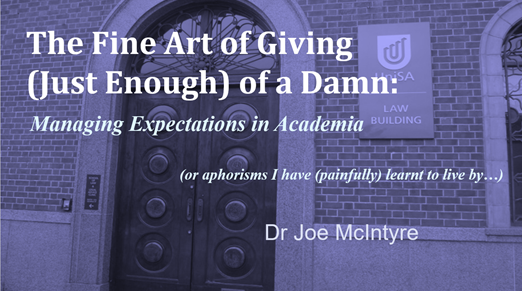
(1) This is the quintessential Knowledge Industry – you can’t do it tired, you can’t keep sprinting. 'Success' in academia (whatever that is) takes YEARS (decades even...).
Pace yourself and enjoy the scenery along the way
Pace yourself and enjoy the scenery along the way
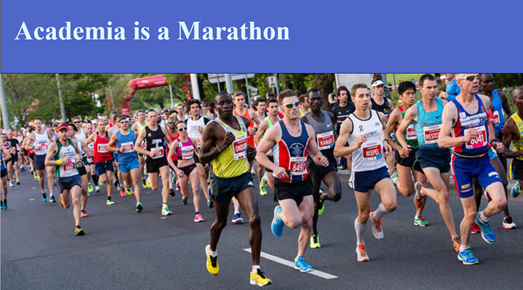
In micro, this means don't work all the time! I learnt during my PhD I could work 4-5 productive hours/day almost indefinitely (I had IDEAL working conditions). I could do 6-7, but it would write me off the next day, & a few longer days days would turn my brain to mush
There will be times when you need to work longer hours - the project is due, you have a new lecture tomorrow. But don't fall into the trap of sprinting the whole time - burn out is your biggest enemy.
Success in an academic career takes time because of the nature of the profession, building up reputation, knowledge, expertise etc. It is a marathon, and there are no shortcuts.
Not everyone likes this form of existence. That is FINE. You will see many tweets from those who left academia and love their choice.
Like running, you need to enjoy the process. No one will really mind/notice if you decide to continue or not - you need to do it for you.
Like running, you need to enjoy the process. No one will really mind/notice if you decide to continue or not - you need to do it for you.
If you do want to do this, remember to pace yourself. Do this career well, and you can be loving it in your 70s. Don’t burn out trying to be full prof by 40 only to fall out of love. Which of these careers do you want? 

Go easy on yourself. Part of managing the distance is that sometimes it goes wrong. You can't get past the reviewers (my book took 7 years of being knocked back before it got published...) But with a perspective of decades this is OK.
NOTE: I am writing this from the privileged position of a secure tenure. It is SOOO hard as an ECR, and you always feel like there is more you can do. BUT you need to remember to look after yourself, and your physical and mental health - your career is secondary
(2) It is important to remember that this is a hungry profession. There is always more needed, more to do, another project, another article, more engagements, more possibilities. Academia can be consuming. 

No matter how hard you work you can never do ‘enough’. Rather you have to accept that there is only so much you can do – be honest with yourself, with your boss, with your colleagues.
Take control, and don’t let it consume you.
Take control, and don’t let it consume you.
Again, this is super hard to do when you are in precarious employment situations, when you are worried about probation etc. This is where being honest is important. Because there will always be more you can do
This is another hard one, that I have spent a lot of time reflecting on this year. You see, earlier this year I suffered a traumatic brain injury, and six months later I am still restricted to working around 2 hours a day
https://twitter.com/Dr_Joe_McIntyre/status/1419565377772691459
I love my job. @UniversitySA is a fabulous place to work.
BUT...
I am now injured. And by and large the univers(e/ity) just keeps plodding on. Yes we may be good at our job. Yes we can make a difference. But it is a job. We are replaceable.
BUT...
I am now injured. And by and large the univers(e/ity) just keeps plodding on. Yes we may be good at our job. Yes we can make a difference. But it is a job. We are replaceable.
This is not a counsel of despair. We should be committed to the academy. We should strive to make the machine better, fairer, more functional.
But this is a collective enterprise. It is not all on our shoulders. And we must look after ourselves if we are to contribute.
But this is a collective enterprise. It is not all on our shoulders. And we must look after ourselves if we are to contribute.
(4) Many of us LOVE what we do. But there is a dark side to this.
While this commitment energises us, it leaves us vulnerable. We want to help our students, our co-authors, our boss, our school/faculty/unit.
While this commitment energises us, it leaves us vulnerable. We want to help our students, our co-authors, our boss, our school/faculty/unit.

Last year I wrote that in response to the pandemic-induced #highered funding crisis in Australia, staff were extraordinarily generous is accepting pay cuts and increase load because they believe in what they do (without demanding increased management accountability)
But 17,000 jobs were still lost nationwide. And this years more jobs and programs are being cuts. We are seeing staff described as 'warm bodies'. Poor conditions, employment uncertainty and wage theft are rife.
abc.net.au/news/2020-08-0…
abc.net.au/news/2020-08-0…
I mean in what universe is this a rational economic solution:
https://twitter.com/tdesouzadias/status/1422893014217859079
This is another way of stating that this is a job. It is a job many of us LOVE. But it is still a job.
We need to learn to recognise & channel the love of what we do, without leaving ourselves vulnerable to exploitation. Set boundaries - don't reply to students after hours
We need to learn to recognise & channel the love of what we do, without leaving ourselves vulnerable to exploitation. Set boundaries - don't reply to students after hours
One of the reasons I (generally) refuse to work weekends is that I reserve that time for my family. But also, I am now a relatively secure MCR. If *I* work like that, I contribute to a culture that expects it. The ECR scrambling for a job feels like they must too. That's not OK
(5) Starting out in academia is HARD. But it get easier over time. Once you graduate your PhD you are journeyman scholar, but an apprentice academic.
Learning how to balance the demands of teaching, research, service, grants, Uni politics, takes time. There is no short cut.
Learning how to balance the demands of teaching, research, service, grants, Uni politics, takes time. There is no short cut.

Be forgiving of yourself that is it super hard in the first 3-4 years. Finding time to research during term is super hard.
But it gets easier.
But it gets easier.
In my first 4 years I had 18 courses, in 4 Unis on 3 continents. This year I had no new lectures – and I could get research done EVEN IN A PANDEMIC. It might take 12-15 hours to write a new lecture, v 1-2 to update one.
It all gets easier with time. So go easy on yourself now
It all gets easier with time. So go easy on yourself now
(6) This is one of the hardest lessons to learn in academia. This does not mean you do a crap job. But it does mean that not everything needs to delivered to the highest level of excellence you are capable of. 
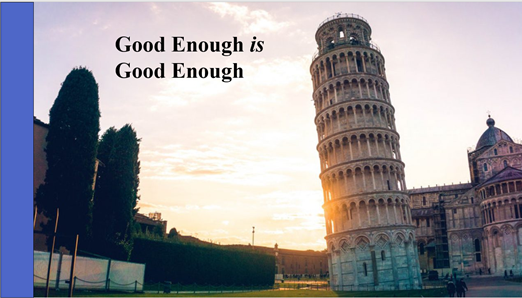
This is most obvious for teaching, but is just as important to remember to research as well. Most academic work suffers from massive diminishing returns,
(7) University special places – we rightly think of them as the inheritors of the enlightenment ideal. But there remain significant issues that demand our attention – and we have an obligation to address them. 

In many countries, racism remains a significant (and often unacknowledged) challenge. Please take a moment to follow @MindyWishart - the Dean of Law at Oxford – as she works to draw attention to this issue through the #RaceMeToo campaign.
https://twitter.com/MindyWishart/status/1423562846152138752
Sexism remains a problem. And too often it still morphs into sexual harassment, with behaviour even from those at the very top that is utterly unacceptable in the contemporary workplace:
theguardian.com/australia-news…
theguardian.com/australia-news…
There are structural issues that continue to privilege those of us within certain demographics and classes. Notoriously, SETs – the primary tool for assessing teaching – are recognised as systemically discriminatory, yet continue to be embraced:
link.springer.com/article/10.100…
link.springer.com/article/10.100…
The ceaseless pursuit by Universities of external funding (including from defence, mining and resources sectors) raise uncomfortable issues regarding how that money can distort the operation and culture of universities (here from @Antipodemia):
watoday.com.au/national/weste…
watoday.com.au/national/weste…
The challenge here is for us to be neither blind nor passive, to act against deficiencies in the Academy’s pursuit of those enlightenment ideals. If you are in a position of privilege, listen to those who are not. Be a good ally
https://twitter.com/Prof_DFrench/status/1423624620498997252
(8) This leads me on to the next issue: Integrity is not an optional extra. It is all we have. It is our only shield. It is the foundation upon which the entire edifice of the Academy rests. 
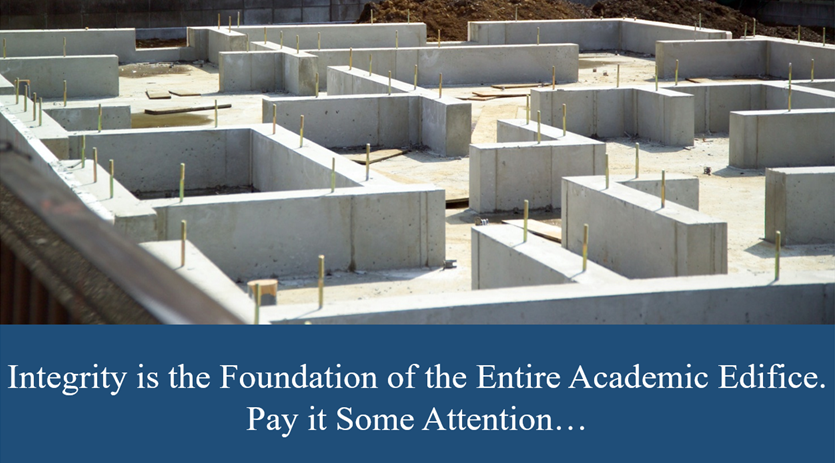
Academic discourse only works because we can have faith in each other, in our methods, and our dedication to and pursuit of knowledge. Our teaching depends upon our authentic reputation for expertise. And our academic community depends upon our respect for, &trust in, each other
Integrity in not just about maintaining research ethics. It is about a commitment to our ideals, and a willingness to act on them. We have academic freedom precisely to encourage such actions.
This means that when we see discriminatory or unacceptable behaviour, we must not turn a blind eye.
But it also means we must protect ourselves. Because things will go wrong. Bullying will happen. There will be disputes over authorship. There will be lazy Professors and exploited hierarchies. Disputes within the academy can become heated and personal.
And this is where our integrity becomes our shield.
Because if you are always striving to walk the (often challenging) path of integrity, you not only protect the soul of the University, you protect yourself.
Because if you are always striving to walk the (often challenging) path of integrity, you not only protect the soul of the University, you protect yourself.
And it is your reputation that is your greatest asset in the academy – and increasingly and properly, this includes your reputation as a person of integrity.
(9) See the thing is, ultimately, a University is a massive community of synergetically interacting organisms. Everything we do, we are doing collectively. Our teaching. Our research. Our service. 
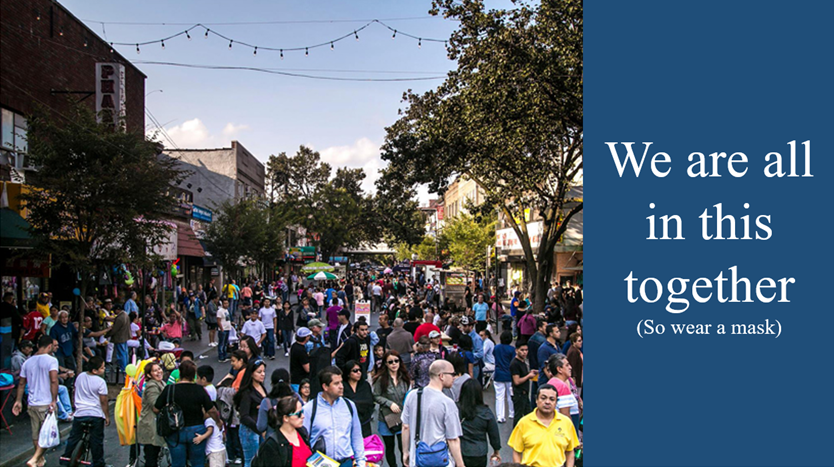
And this is FRICKIN wonderful!
I love the fact that in this industry I have dear friends from every corner of the world. I have so many 🤯conversations with brilliant people through my writing, over a drink, or through the wonderful creature that is #AcadmicTwitter
I love the fact that in this industry I have dear friends from every corner of the world. I have so many 🤯conversations with brilliant people through my writing, over a drink, or through the wonderful creature that is #AcadmicTwitter
And this is where the last to issues come together. We, each of us, should be working to make this a community to be proud of.
Be nice! Hang out with people who challenge and support you to be amazing. Be that person to others.
Be nice! Hang out with people who challenge and support you to be amazing. Be that person to others.
This is not a competition, but an awesome collective endeavour. Help those coming behind your.
One of my dear mentors passed away this year, and perhaps the most striking thing from the many memorials was the consistent repetition of his commitment to helping young scholars and all those around him with humour, grace and generosity
https://twitter.com/orford_anne/status/1418078618937266262
We are given such freedom in this industry. But that is not an excuse to focus inwardly or selfishly. The pure ‘lone wolf’ model of academia is no longer acceptable (if it ever was). We are doing all things collectively, and we therefore have obligations to that collective
If we think we are doing it all by ourselves, then we probably are blind to the extensive privileges that make this possible (and this too easily become hostile to those without such privilege)
Being stuck on the sidelines this year has really reinforced how important our connections, our community is. I am sorry if these feel a bit preachy, but as I stated at the start – these insights have all been hard earnt.
Be nice, ‘cause at the end of the day it is the people around you that really matter.
(10) Find your own path (and ignore everything I say that strikes you as wrong!)
Because Success demands compromises and choices.
Because Success demands compromises and choices.
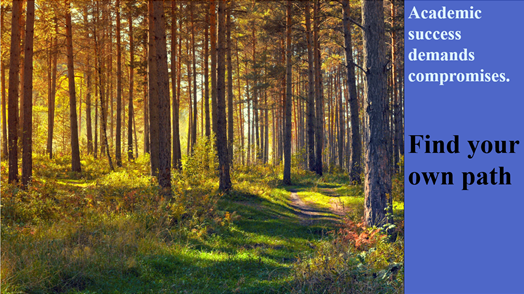
Every time @juliettemm have moved country/city we leave behind people and places we love. We dream of an Adelaide with the mountains of BC and the dreamy spires of Cambridge. But following one opportunity means abandoning others
Academia is the same. You have to make compromises as to which ends you will pursue, which path you will follow.
Every path chosen has another path ignored. This is unavoidable, and often hard. But this is OK
Find your path. It does not have to match another's
Every path chosen has another path ignored. This is unavoidable, and often hard. But this is OK
Find your path. It does not have to match another's
Making these choices is compound by uncertainty: you often decide on incomplete information, with unknown consequences. But remember, very little is irrecoverable - and if this career is 30-40 years long, you will have time
(11) The flip side of this demand that you choose your own path is that you need to be at peace with those choices, and own the consequences. 
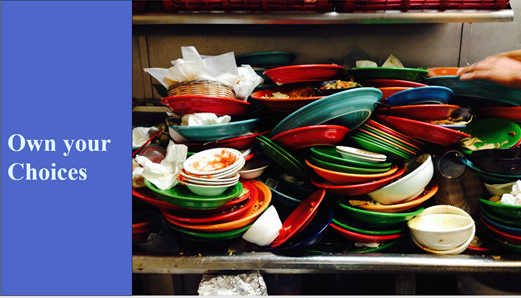
For example, if you have kids, you may not be able to work the long hours and weekends you used to. Your research output may drop. Your career will take a hit for a while – this is cool. Own it.
Men. This is particularly so for us. Our privilege here is intense. Pick up the sick kids. Do the damn dishes. We don't have to deal with the debilitating mothers guilt. Yes it means you can't do everything. But that's the choice. Frankly knocking off at 4pm to do this is tops: 
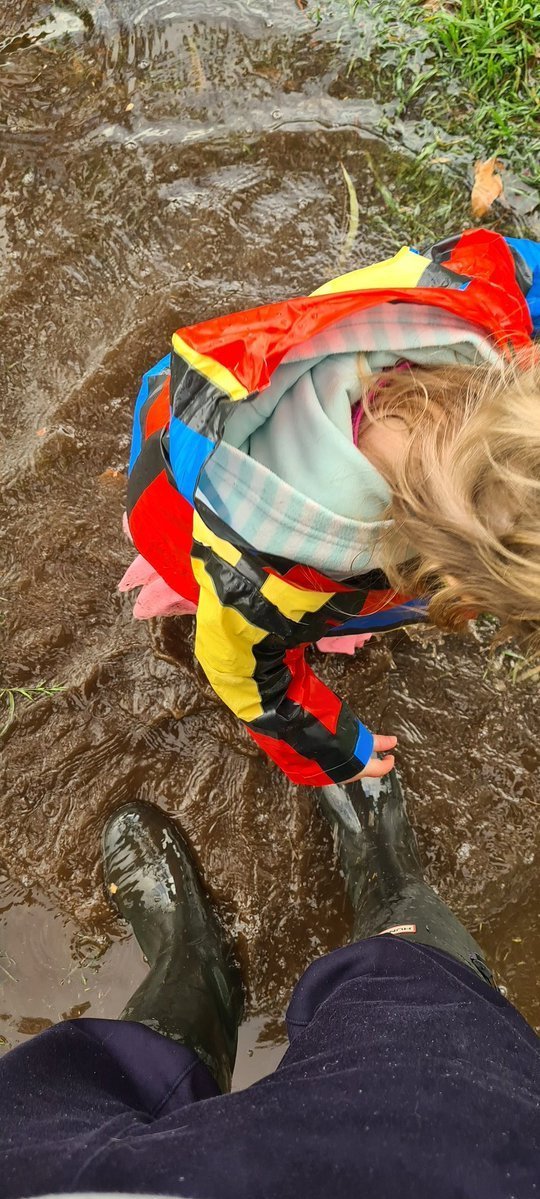
(8) Relying on external validation and comparing yourself to others is a mugs game. This can be super destructive in this industry - not only are our gatekeepers constantly critiquing our work, but we are surrounded by superheroes 
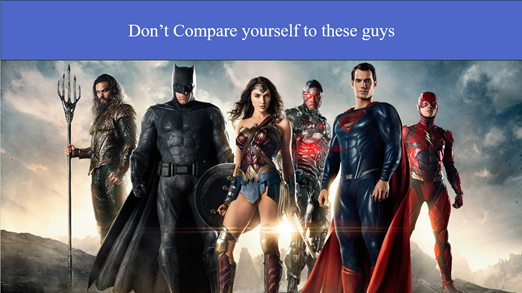
Being surrounded by brilliant people is one of the great privileges of this work. But it can be hard at time. Many of us have an excess of anxiety and self doubt (Waving hand). Its easy to feel like we have to keep up with others. But enjoy your path
https://twitter.com/Fergal_Davis/status/1308119102377033731
(12) Enjoy this ride. For many of us, this job is the best thing ever. Have fun. And enjoy the community of legends around you that can help make it fun for all of you 

Be alert to your own mental health. Anxiety is super common in this profession (my hand up). Imposter Syndrome is commonly offered as an optional upgrade for most PhD parchments.
OK to recognise this, take care. Remember it is a job, but can be a really fun one.
OK to recognise this, take care. Remember it is a job, but can be a really fun one.
(10) Take only as much of this as is useful. These are some hints that I wish I had learnt earlier. They reflect my journey. You will all have your own challenges, obstacles and moments of brilliance. If you are struggling, reach out.
END.
(Thanks for letting me re-record my thoughts - I hope there is one or two points in here that resonate/are are helpful)
(Thanks for letting me re-record my thoughts - I hope there is one or two points in here that resonate/are are helpful)
• • •
Missing some Tweet in this thread? You can try to
force a refresh

